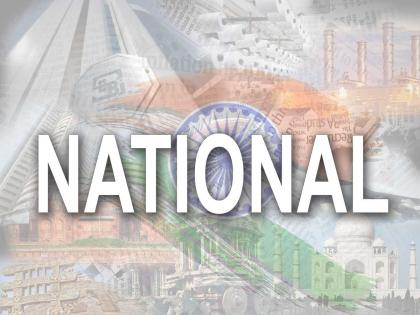Mamata doing vote-bank politics by opposing CAA: JP Nadda
By ANI | Published: December 23, 2019 06:32 PM2019-12-23T18:32:37+5:302019-12-23T21:47:17+5:30
Hitting out at West Bengal Chief Minister Mamata Banerjee, Bharatiya Janata Party (BJP) working president JP Nadda on Monday said she is doing vote-bank politics by opposing the Citizenship (Amendment) Act (CAA), 2019.

Mamata doing vote-bank politics by opposing CAA: JP Nadda
Hitting out at West Bengal Chief Minister Mamata Banerjee, Bharatiya Janata Party (BJP) working president JP Nadda on Monday said she is doing vote-bank politics by opposing the Citizenship (Amendment) Act (CAA), 2019.
"West Bengal Chief Minister Mamata Banerjee is just doing vote bank politics by opposing the Citizenship (Amendment) Act. The huge crowd here shows that people are in support of the Act and she should understand that people have rejected vote-bank politics," Nadda told during a massive rally held here.
He said that Mamata Banerjee does appeasement and vote-bank politics. "There are so many communities who have faced a lot of trouble in the past. With this Act, the Modi government has given all of them the rights to be our citizens and whole West Bengal is happy about it," he added.
"For the first time, Matua, Rajbanshi, and Namasudra communities are going to breathe the air of freedom. With citizenship, they will also feel they are being honoured. It is PM Modi's aim to uplift Dalits and the poor," said the BJP leader.
Adding that the people are extending their support through slogans, Nadda said that West Bengal is giving indications of change and the message has reached Mamata too.
"Mamata and her party leaders are trying to mislead the state over CAA. In 1947, Gandhi said that the government will provide all the facilities to those who want to come to India. Now, PM Modi has fulfilled it," he said.
The Act grants citizenship to Hindu, Christian, Sikh, Buddhist and Parsi refugees from Pakistan, Afghstan, and Bangladesh, who arrived in India until December 31, 2014.
( With inputs from ANI )
Open in app